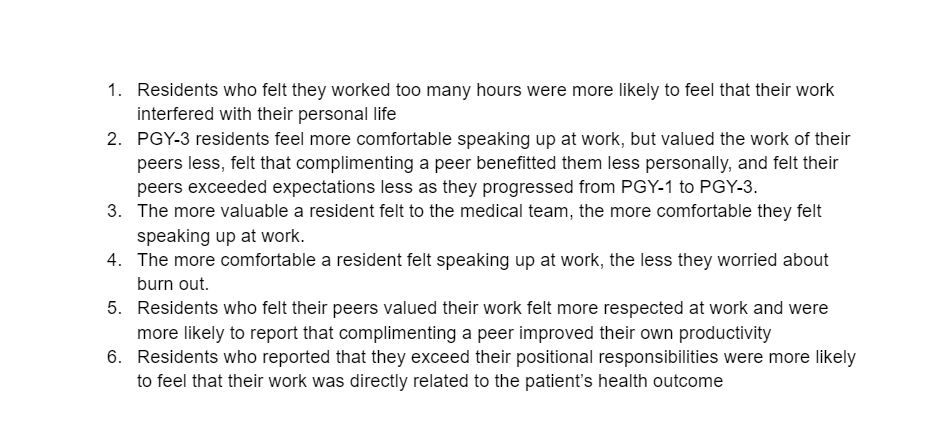Medical Education
Session: Medical Education 5
404 - Creating a Compliment Culture: Assessing Barriers to Pediatric Resident Morale
Saturday, May 4, 2024
3:30 PM - 6:00 PM ET
Poster Number: 404
Publication Number: 404.1132
Publication Number: 404.1132
- AS
Alexandra Seabury, MD, MS (she/her/hers)
Pediatric Resident
The Children's Regional Hospital at Cooper
Philadelphia, Pennsylvania, United States
Presenting Author(s)
Background: Concerns regarding low morale, depression, anxiety and overall wellness have always been rampant within medical residency training, especially during and since the COVID-19 pandemic. While efforts to enhance resident morale and develop a positive work environment have increased, there has been very little data collection regarding organized methods of sustained resident engagement. In order to fully understand the barriers to establishing a positive work environment, ways to measure the impact of positive reinforcement and celebration of individual and collective successes on an individual’s feelings and workplace perception must be devised.
Objective: To increase resident morale and the perception of recognition of their and others accomplishments and efforts through establishing a culture of complimenting
Design/Methods: Between October 2022 and March 2023, at scheduled bi-weekly conferences, designated time was provided as a forum for the exchange of compliments and acknowledgement of achievements and extraordinary effort. The forums modeled a “compliment culture” to increase morale and encourage a positive work environment.
Prior to the first forum and following the final session, customized surveys were administered to a random sample of PGY-1, PGY-2 and PGY-3 Cooper University Hospital Pediatric Residents. These surveys assessed an individual's morale, perception of the workplace and culture, barriers to compliment culture, and valuation of self and peers.
Results: 19 pre and post intervention 26 question anonymous surveys (sample Table 1) were compared based on PGY class response and individual questions answered. Using a 1-tailed t-test, there was a statistically significant difference between the pre and post test in questions 2 and 3. A correlational table (Table 2) was utilized to assess associations between questions, which elucidated several themes which were persistent in the Cooper Pediatric Residency workplace culture (Table 3).
Conclusion(s): Through use of a simple intervention, such as designated time for residents to appreciate the work of their peers, significant impact can be seen on workplace morale and risk of burnout. This research further supports the idea that studying internal deficits in culture can produce more detailed insights into the drivers behind resident burnout.
.png)


